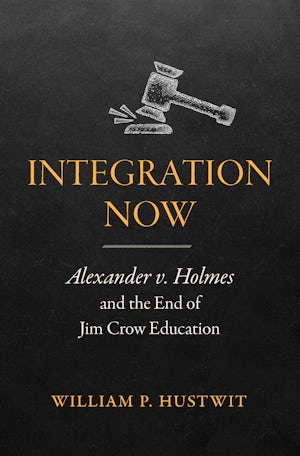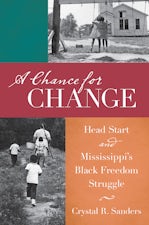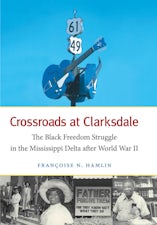Integration Now
Alexander v. Holmes and the End of Jim Crow Education
By William P. Hustwit
282 pp., 6.125 x 9.25, 8 halftones, 1 map, notes, bibl., index
-
Paperback ISBN: 978-1-4696-6874-1
Published: November 2021 -
Hardcover ISBN: 978-1-4696-4855-2
Published: February 2019 -
E-book PDF ISBN: 979-8-8908-5647-0
Published: February 2019 -
E-book EPUB ISBN: 978-1-4696-4856-9
Published: February 2019
Buy this Book
- Paperback $29.95
- Hardcover $39.95
- E-Book $19.99
For Professors:
Free E-Exam Copies
Hustwit traces the progression of the Alexander case to show how grassroots activists in Mississippi operated hand in glove with lawyers and judges involved in the litigation. By combining a narrative of the larger legal battle surrounding the case and the story of the local activists who pressed for change, Hustwit offers an innovative, well-researched account of a definitive legal decision that reaches from the cotton fields of Holmes County to the chambers of the Supreme Court in Washington.
About the Author
William P. Hustwit is associate professor of history at Birmingham-Southern College and the author of James J. Kilpatrick: Salesman for Segregation.
For more information about William P. Hustwit, visit
the
Author
Page.
Reviews
“Integration Now combines legal and social history. To trace the dynamics of change in the Alexander case, it traces the collaboration between grassroots activists in Holmes County, Mississippi, and the lawyers from the NAACP’s Legal Defense and Education Fund, including Marian Elizabeth Wright and James Jacob “Jack” Greenberg.”--Journal of Southern History
"Analytically refreshing and richly sourced, Integration Now offers a thorough history of the struggle for equal rights in Holmes County--the site of the most successful movement for civil rights in all of Mississippi. A first-rate piece of work and hard to put down."--Alan Draper, St. Lawrence University
"Hustwit’s account is deeply researched and very moving, providing a nuanced look at how and why different black communities in Mississippi either did--or did not--find the resources to resist Jim Crow segregation."--John Charles Boger, University of North Carolina at Chapel Hill
"Engagingly written and forcefully argued, this is a major contribution to the history of the black freedom movement."--Charles C. Bolton, University of North Carolina at Greensboro




